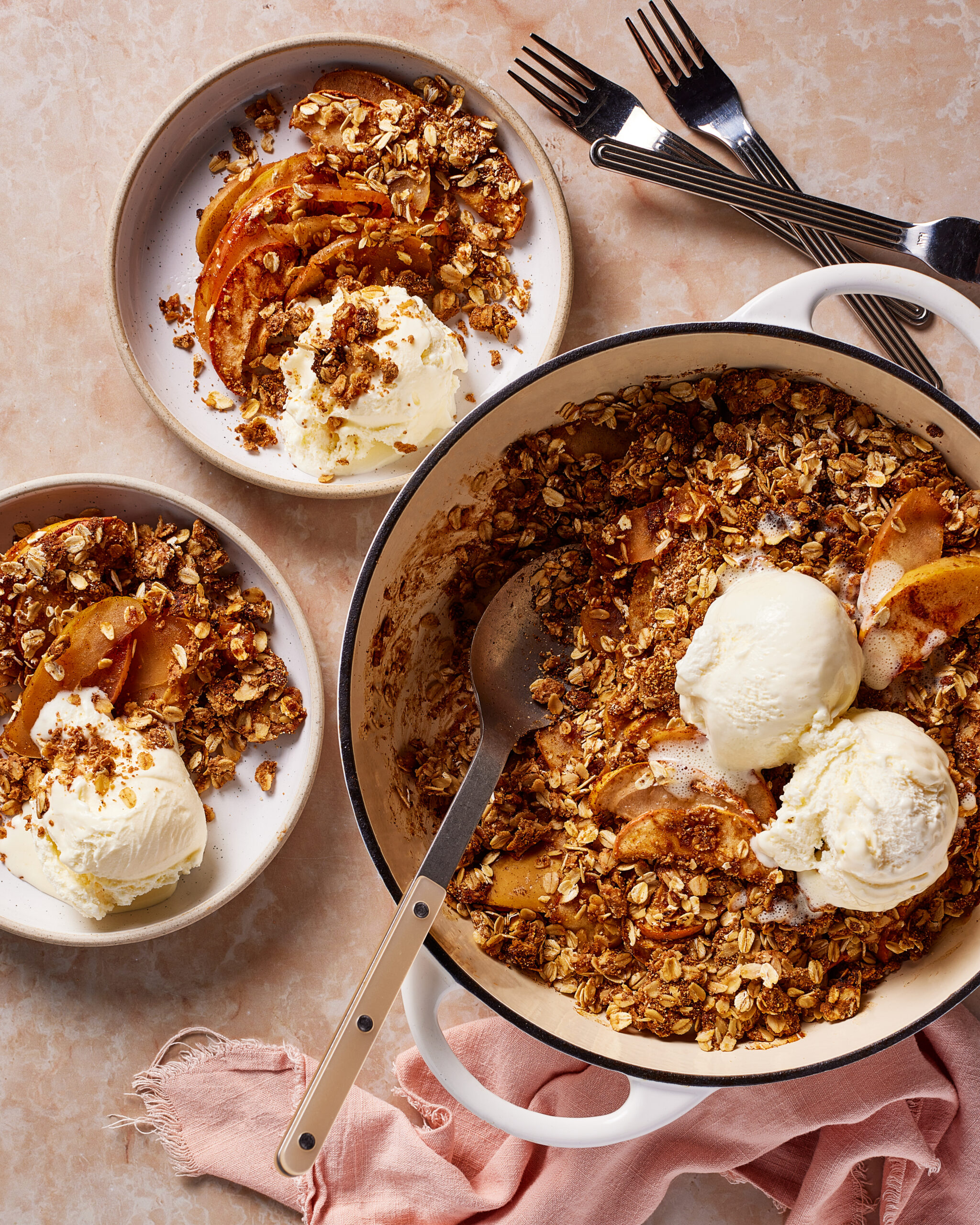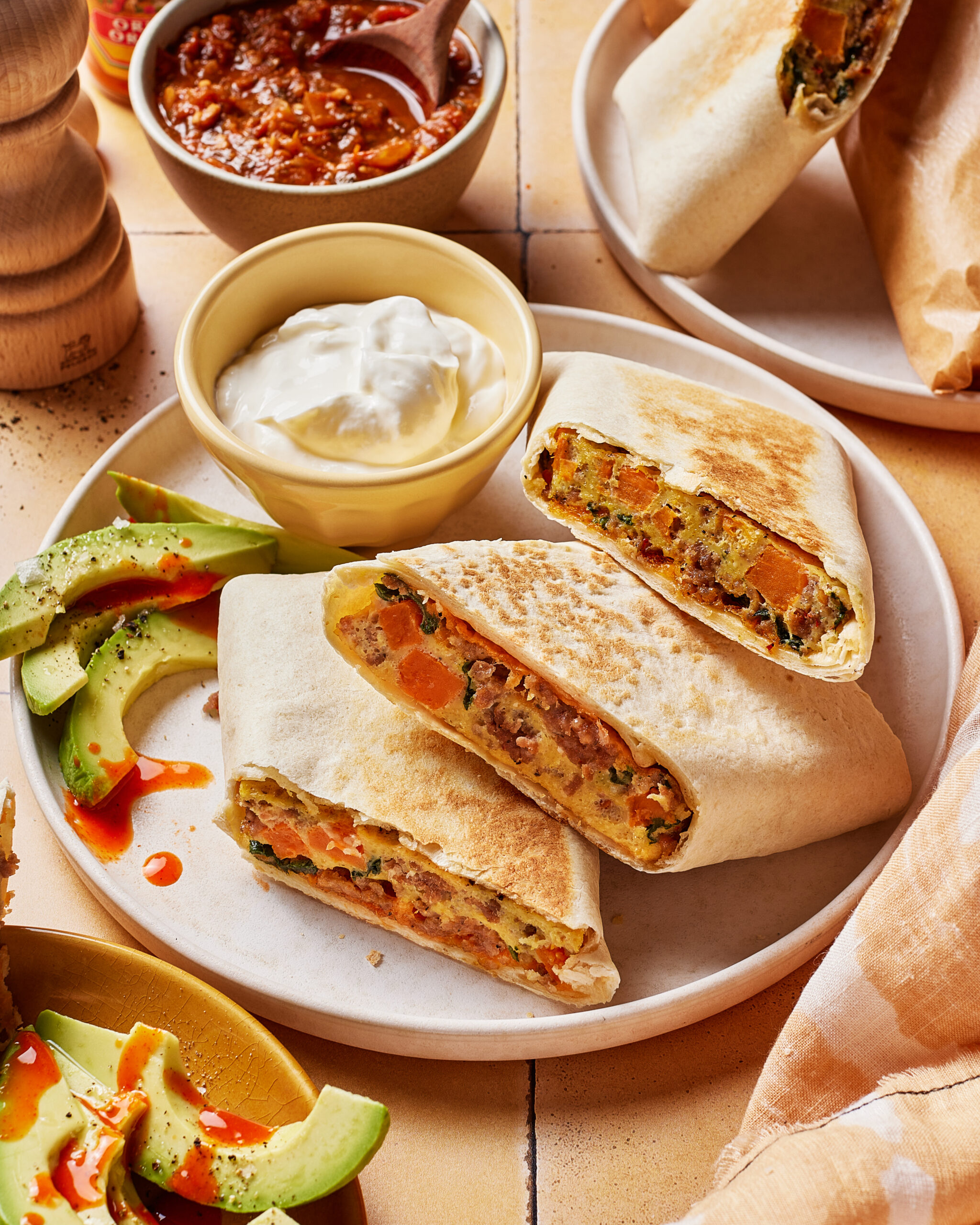recipes
lifestyle
wellness
motherhood
mindset
About
E-Books
Blog
Freebies
partnerships
hi, i'm lauren!
hey there!
I’m on a hot mission to help you balance your hormones & live your best life.
categories
Home
Quiz
Get In Touch
The Course
search:
Cookbook
Recipe key
GF
VG
P
Vegan
Gluten Free
Paleo
DF
Dairy-Free
download now
Join Hormone Healthy Eats!
Become a SFNSG insider to get my monthly Substack, Hormone Healthy Eats! Packed with the latest hormone-healthy recipes
+ tips.
jump to recipe >
WHAT IS ENDOMETRIOSIS?
Endometriosis is a painful, sometimes debilitating condition that affects as many as one in ten women in their reproductive years. It occurs when endometrial-like tissue, which is normally found in the uterus, grows in places outside of the uterus, where it shouldn’t be.
Most of the time this misplaced endometrial tissue lands on the ovaries, fallopian tubes, or abdomen. Because the endometrial tissue responds to the same hormonal shifts that trigger the menstrual cycle, the pain associated with it will follow the same 28-day cycle of your period.
It has been linked to a compromised immune system, excess estrogen, and inflammation, which can damage and destroy a woman’s eggs or man’s sperm. Additionally, if the endometriosis is in the fallopian tube lining, it can prevent an egg from traveling to the uterus to implant.
Endometriosis can be very difficult to diagnose (the average delay in diagnosis is seven years!), but if you experience regular symptoms such as crippling pain or cramps, GI issues, or debilitating periods, know that the best remedy to combat this pain is with your diet (as is really the case with any hormone imbalance).
The anti-inflammatory recipes and foods listed in this post all work to reduce inflammation that can trigger painful flareups. Additionally, you’ll want to take care to adhere to the foods to avoid section, as these can all increase inflammation in the body, leading to heightened symptoms.
Wondering if you have Endometriosis or another hormone imbalance? Take this free quiz to investigate.
SYMPTOMS OF ENDOMETRIOSIS
Endometriosis may present differently in each woman, making it somewhat confusing to diagnose. However, common symptoms of endometriosis include:
+ Increased pain during periods, ovulation or sexual intercourse
+ Pain with bowel movements and urination
+ Pelvic Pain
+ Heavier periods or excessive bleeding/blood clots
+ Bleeding between periods
+ Gut Issues including bloat, diarrhea and constipation
+ Low back pain
+ Intense menstrual cramping
+ Fatigue/exhaustion
+ Fertility challenges/Difficulty conceiving
CAUSES OF ENDOMETRIOSIS
Unfortunately, the exact cause (or causes) are unknown, but researchers believe a number of factors may play a role, including:
+ Estrogen Dominance
Endometriosis has been linked to estrogen dominance, and endometrial lesions can also produce their own estrogen, further exacerbating symptoms and creating a vicious cycle. Thus getting estrogen back in balance has been a key component of healing for those with endometriosis.
+ Chronic Inflammation
Research has identified inflammatory markers such as tissue-specific antibodies and inflammatory cytokines present with endometriosis, which could be linked to intestinal permeability or autoimmune disease (see below).
+ Gut Health Issues/Intestinal Permeability
When intestinal permeability is present, larger proteins (such as those found in gluten) are able to break through the gut barrier and into your immune system, which recognizes it as a foreign invader and attacks. This triggers inflammation and food sensitivities, both of which can lead to an autoimmune condition if left untreated.
+ Autoimmune Conditions
Both chronic inflammation and intestinal permeability are risk factors for autoimmune disease, which could be both a driving factor and result of endometriosis.
+ Exposure To Toxins
Harmful environmental toxins such as dioxins (found in tampons) and PCB’s (contaminated soil and drinking water) are thought to increase the risk of endometriosis by altering immune function, hormonal balance and growth factors. Additionally, repeated consumption of hormonal birth control and OTC’s can lead to intestinal permeability and decimate good gut bacteria, leading to inflammation and autoimmune disease.
HOW TO NATURALLY TREAT ENDOMETRIOSIS WITH YOUR DIET
While every case of endometriosis is different, if there’s two things I want every woman out there suffering from it to know, it’s that 1) there is absolutely zero shame in whatever treatment option works best for you and 2) that being said there are other options out there besides invasive medical surgeries or painkillers and birth control, which include a long list of side-effects.
In fact, emerging research shows endometriosis can be effectively treated with anti-inflammatory nutrition and lifestyle modifications, which work to resolve gut health issues and hormone imbalances associated with endometriosis and alleviate symptoms (and BONUS these methods don’t have any nasty side effects).
Below are a list of my top anti-inflammatory foods and recipes to treat endometriosis, however please keep in mind that each case is different, and you will need to experiment with what works best for you based on your unique condition.
ENDOMETRIOSIS DIET ADVICE + EATING TIPS
+ Fill Your Plate With Plants
While the research is mixed on whether or not endometriosis can be treated with a plant-based diet, we do know plant foods like leafy greens, cruciferous and root veggies, berries and citrus, etc. to be rich in micronutrients, phytonutrients and fiber that work lower inflammation in the body, which can drastically help reduce endo symptoms.
**When consuming cruciferous vegetables like broccoli, kale, cauliflower, cabbage, etc. it’s important to cook them first. This significantly reduces goitrogens, which can suppress thyroid function and contribute to gut dysfunction.
+ Add in Anti-Inflammatory Herbs and Spices
Spices and herbs such as turmeric, ginger, garlic, cinnamon, cacao, dark chocolate, chamomile, mint, etc. are all high in anti-inflammatory properties that work to reduce pain and symptoms associated with endometriosis.
Turmeric in particular contains a compound called curcumin, which clinical studies have found able to inhibit the growth of endometriosis cells by suppressing the production of estradiol (a form of estrogen).
Try adding more herbs and spices to your smoothies (mint chocolate anyone?!), cooking them into soups, garnishing your salads and bowls, and even adding them into your dessert.
+ Avoid Excess Caffeine, Sugar and Gluten
While I’m a big fan of adding things in vs. taking them away, overconsumption of these substances can mess with blood sugar, leading to hormonal imbalances. Caffeine also impairs your liver, which can impact your body’s ability to naturally detoxify and lead to a buildup of estrogen, worsening symptoms over time.
Last but certainly not least, several studies have found gluten to increase intestinal permeability, causing inflammation and an immune response in the body that can lead to an autoimmune condition if not resolved.
Try swapping sugar in recipes for small amounts of less processed forms (dates, fruit, maple syrup), switching coffee for matcha, green tea, mushroom coffee, or decaf, and substituting breads, pasta, cereal, baked goods, etc. for gluten-free options made of quinoa, buckwheat, millet, brown rice, oats and chickpeas or legumes.
+ Support Your Gut Health
There are many emerging studies linking disrupted gut health and intestinal permeability to endometriosis, which can lead to autoimmune conditions if not treated.
Thus working to support our gut through eating anti-inflammatory foods (especially cruciferous vegetables, which help us remove excess estrogen that can further disrupt hormones and exacerbate symptoms ), taking probiotics (this is my fave brand, use code SOFRESH15 to save) and avoiding inflammatory foods and triggers (like those listed below) will go a long way in treating endometriosis.
+ Add Foods That Boost Melatonin Production
Research has shown melatonin (a hormone naturally produced in the body) to help reduce pain with menstruation, urination, sex and bowel movements (all common symptoms of endometriosis).
That being said, because melatonin is a hormone, supplementing with it has mixed results and can produce other side effects, while adding in foods that naturally support melatonin production (such as bananas, cherries, pistachios, oats, rice, mushrooms, etc.) has no side effects.
+ Eat To Support Your Cycle
Your body has unique nutrient needs during each phase of your menstrual cycle based on hormone fluctuations. Rotating in a variety of foods based on these needs works to keep hormones balanced, regulate your period, lower inflammation, promote optimal gut bacteria growth and reduce food sensitivities, as it prevents your gut from getting overexposed to triggering foods.
ENDOMETRIOSIS FRIENDLY FOODS
+ Fatty Fish (Salmon, Tuna, Sardines, Mackerel)
Rich in Omega-3 fatty acids that work to lower inflammation.
+ Cruciferous Veggies (Broccoli, Kale, Cauliflower, etc.)
Assist your liver in eliminating excess estrogen that can worsen endo symptoms. **Make sure to cook to reduce goitrogens, which can inhibit thyroid function.
+ Healthy Fats (Olive Oil, Avocado, Coconut)
Help do everything from lowering inflammation to boosting fertility and regulating your hormones and menstrual cycle.
+ Leafy Greens
High in anti-inflammatory phytonutrients and antioxidants, as well as B vitamins needed to boost metabolism, support fertility and assist in melatonin production.
+ Berries + Dark Pigmented Fruit (Blueberries, Blackberries, Cherries)
Loaded with antioxidants that work to lower oxidative stress, reducing inflammation.
+ Bananas, Mushrooms, Rice, Oats, Pistachios, Cherries, etc.
Naturally support melatonin production, a hormone linked with a reduction in pain via menstruation, sex, urination and bowel movements.
+ Nuts & Seeds (Walnuts, Peanuts, Chia, Flax, etc.)
Rich in fatty acids that reduce inflammation, as well as fiber to support the elimination of excess estrogen.
+ Lentils + Legumes
Rich in protein and fiber that work to maintain healthy blood glucose ranges and support good gut health.
+ Complex Carbohydrates (Brown Rice, Oats, Sweet Potato, Squash)
High in fiber that regulates insulin levels as well as B vitamins shown to lower inflammation.
+ Anti-Inflammatory Spices (Turmeric, Cinnamon, Dark Chocolate)
Work to lower inflammation, stabilize blood sugar and increase nitric oxide production to promote fertility.
ANTI-INFLAMMATORY ENDOMETRIOSIS DIET RECIPES
Endometriosis Diet Breakfast Recipes
+ Strawberries N’ Cream Parfait
+ Dark Chocolate Avocado Fudge Smoothie
+ Sweet Potato Pesto Breakfast Bowl
+ Seed Cycling Cacao Hazelnut Granola Clusters
+ Fertility Boosting Cherry Chia Pudding Parfait
+ Maca Powder Fertility Smoothie
Endometriosis Diet Dinner + Lunch Recipes
+ Paleo Butter Chicken + Cauliflower Rice
+ Roasted Pumpkin Salad + Maple Tahini Salad
+ Chicken Farm Salad + Honey Herb Vinaigrette
+ Greek Chicken Quinoa Salad Bowls
+ Healthy Maple Molasses Glazed Brussels Sprouts
+ Roasted Chipotle Cauliflower Tacos
+ Healthy Loaded Sweet Potato Nachos
+ Superfood Guacamole + Jicama Fries
+ Cozy Eggplant Curry + Cardamom Spiced Quinoa
+ Spiced Chickpea, Sweet Potato & Cauliflower Curry
+ Juicy Turkey Avocado Burgers
+ Grilled Miso Salmon + Avocado Salad
+ Fajita Stuffed Sweet Potatoes + Creamy Avocado Sauce
+ Vegan Butternut Squash Mac and Cheese
+ Avocado Curry with Chicken and Vegetables
+ Thai Peanut Stuffed Sweet Potatoes (Recipe Below)
Endometriosis Diet Dessert + Treat Recipes
+ Gut-Friendly Oreo Cookie Blizzard
+ The BEST Healthy Peanut Butter Protein Bars
+ Hormone-Healthy Peanut Butter Hot Chocolate
+ Hormone-Healthy Pumpkin Spice Latte
+ Flourless Fudgey Peanut Butter Period Brownies
+ High Protein Brownie Batter Dip
+ Healthy Chocolate Peanut Butter Cup Fudge
+ Seed Cycling Dark Chocolate Fudge Truffles
+ Healthy Mint Oreo Cookie Shake
**As well as ALL recipes from the Hormone Balance Reset Plan + Fertility Boosting Fundamentals Guide
FOODS TO AVOID WITH ENDOMETRIOSIS
+ Gluten
Shown to increase intestinal permeability and provoke an inflammatory response that can bring on pain (one study showed 75% of women dramatically reduced pain after eliminating gluten from their diet).
+ Trans Fats
High consumption of trans fats found in processed, fried and fast foods has been linked to higher rates of endometriosis diagnosis.
+ Red Meat
Red meat has been linked to increased endometriosis risk.
+ Artificial Sweeteners
Disrupt gut microbiome balance and overgrowth of “bad” bacteria that can lead to inflammation and autoimmune conditions.
+ Soy
An estrogen-mimicker in the body that disrupts your natural estrogen production, confusing hormones and often halting ovulation as a result.
+ Vegetable Oils
Genetically modified, highly inflammatory and severe endocrine health disrupters.
+ Caffeinated Beverages
Too much can put strain on your adrenals and sex hormones while driving up stress hormone cortisol and inflammation. I encourage limiting to 200mg or less per day.
+ Alcohol
Alcohol raises estrogen levels, which can lead to increased endometrial symptoms.
ENDOMETRIOSIS DIET FOR FERTILITY
While all of the recipes and diet advice above work to naturally balance hormones and boost fertility, I would be remiss if I didn’t specifically mention fertility diet tips for those struggling to conceive. Along with following the guidelines mentioned in this post, you can find more fertility specific recipes, tips and support here.
BOTTOMLINE
Emerging research shows endometriosis can be effectively treated with diet and lifestyle modifications, which resolve hormonal imbalances associated with endometriosis and dramatically reduce symptoms (these methods are also healthier for you all around without having any nasty side effects). While endometriosis can be an incredibly painful and debilitating condition for women, my hope is that this post has also shown you how enjoyable, delicious and fun endometriosis friendly recipes and cooking can be!
As with anything, please take into account each endometriosis case is different, and you will need to experiment with what works best for you. Additionally, there is ZERO shame in whatever treatment option works best for your needs.
OTHER ENDOMETRIOSIS RECIPES & RESOURCES
+ Natural Menstrual Cramp Relief Methods
+ Hormone-Balancing Foods To Eat For Each Phase of Your Menstrual Cycle
+ Gut Health and Hormones — How To Improve Both Naturally
Thai Peanut Vegan Stuffed Sweet Potatoes
These baked sweet potatoes are stuffed with anti-inflammatory greens, fiber-rich chickpeas and drizzled with a creamy, flavorful peanut sauce for the ultimate gut-healthy and endometriosis friendly recipe.
|
PREP TIME: |
TOTAL TIME: |
|
01:00 Hours |
01:30 Hours |
Author: Lauren Chambers
Servings: 4
Recipe Type: Entree, dinner, meal
Cuisine: Asian, Thai
Ingredients
For The Creamy Peanut Sauce:
- ¾ cup creamy, organic and unsweetened peanut butter (can sub for cashew or almond butter if needed)
- ⅓ cup gluten-free coconut aminos
- ¼ cup water (or full-fat canned coconut milk for extra creaminess)
- ¼ cup rice vinegar
- 3 tbsp maple syrup
- 2 tsp minced ginger
- 2 garlic cloves, minced
- 1 tsp Sriracha sauce
For The Baked, Stuffed Sweet Potatoes:
- 4 small to medium-sized sweet potatoes, rinsed and dried
- 1 15 oz. can organic chickpeas, rinsed, drained and dried
- 1 tsp garlic powder
- 1 tsp cumin powder
- 1 tsp ginger powder
- 1/2 tsp coriander
- 1 tbsp maple syrup
- 1 tbsp coconut aminos
- 1 bunch kale, swiss chard or collard greens (about 6 stalks or 2 cups), de-stemmed, chopped, rinsed and drained
- 4 cloves garlic, minced
- 2 tbsp cooking oil such as coconut or avocado oil
- Fresh cilantro, chopped peanuts and diced green onion for topping
Instructions
- First, you’ll need to prepare your sweet potatoes (I like to do this the night before so they’re ready to go when preparing dinner). Rinse and pat dry sweet potatoes and place on a parchment-lined baking pan. Bake whole at 400 F for 1-2 hours (mine are usually perfect at one hour and 30 minutes), until completely soft and fully cooked. Once finished, slice open down the middle, set aside and let cool.
- Next, make your Creamy Peanut Sauce by adding all ingredients to a high speed blender or food processor and mixing until creamy and well combined. Set aside.
- Heat a stove-top pan over medium heat and add in oil, then stir in chickpeas and all seasonings (except for minced garlic) until chickpeas are fragrant and crispy (about 5 minutes). Stir in de-stemmed greens and minced garlic and cook another couple of minutes, until greens are wilted.
- Assemble your sweet potatoes by heaping in a generous portion of greens and chickpea mixture into each one, then drizzling with creamy peanut sauce. Option to top with cilantro, diced green onion, chopped peanuts and more Sriracha if desired.
Notes
**The peanut sauce makes a huge portion, which I love to use as a topping for other bowls and leftovers throughout the week. This dish also makes great leftovers, and will last in the fridge for a few days.
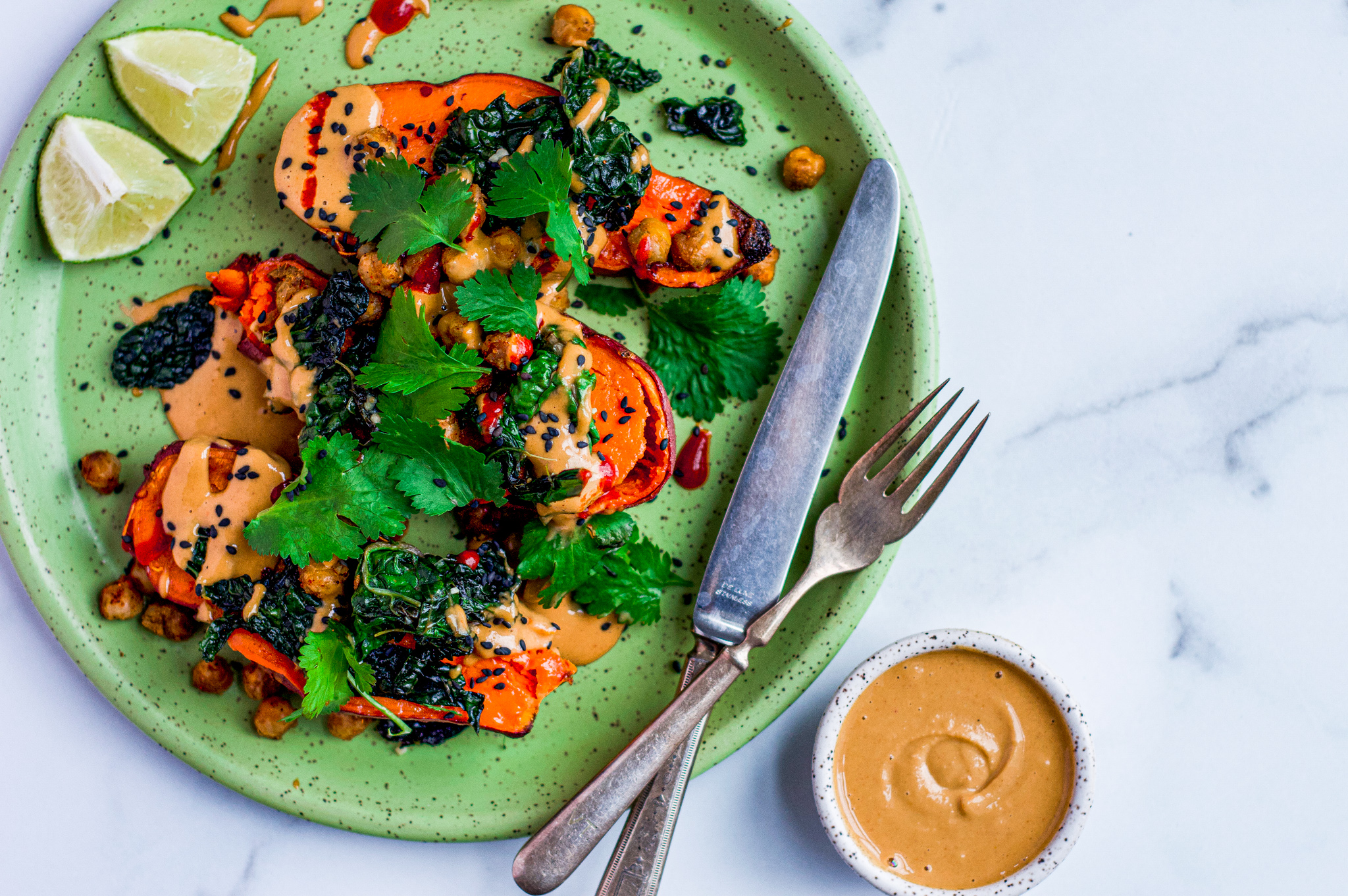
If you loved that...

01.
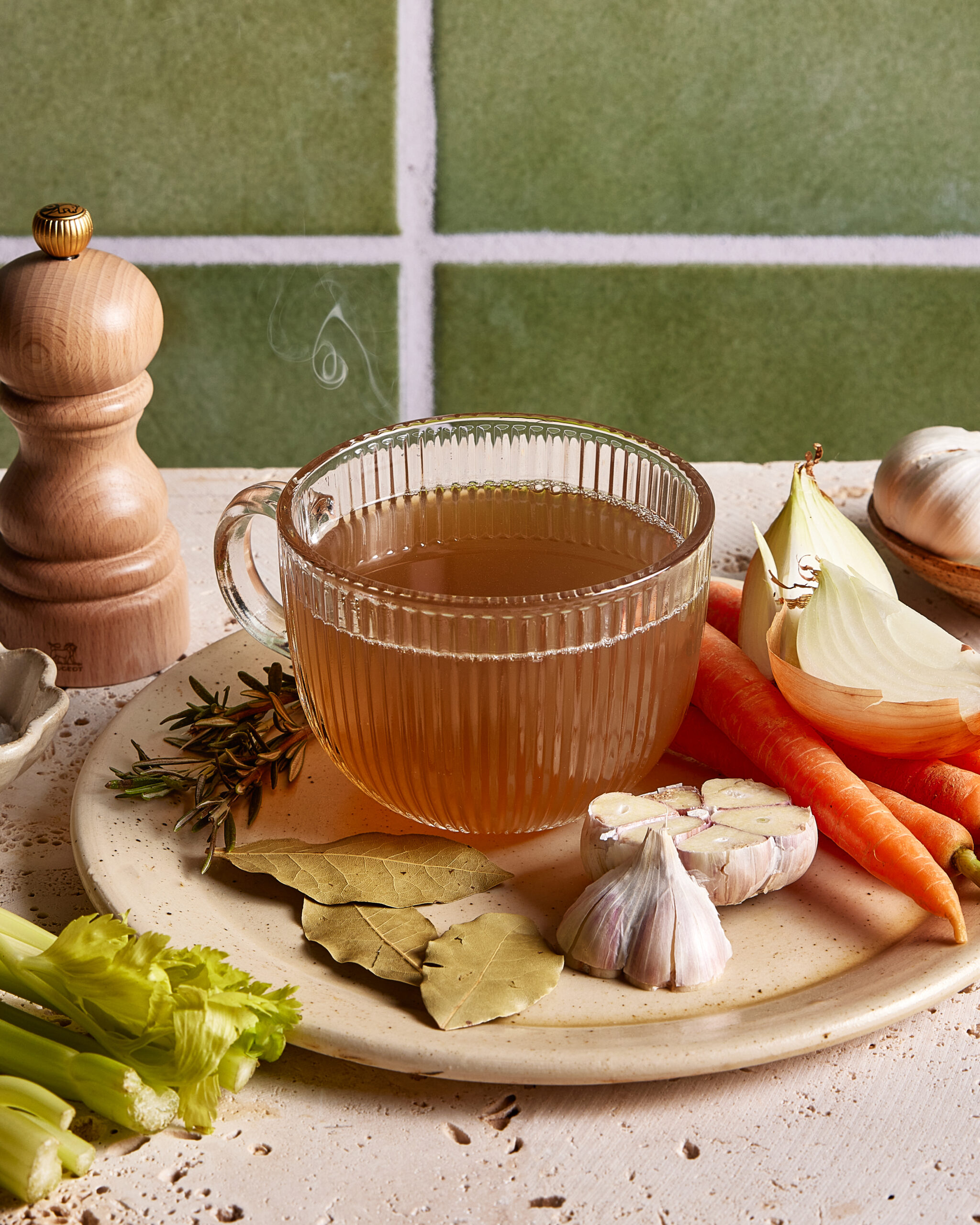
02.
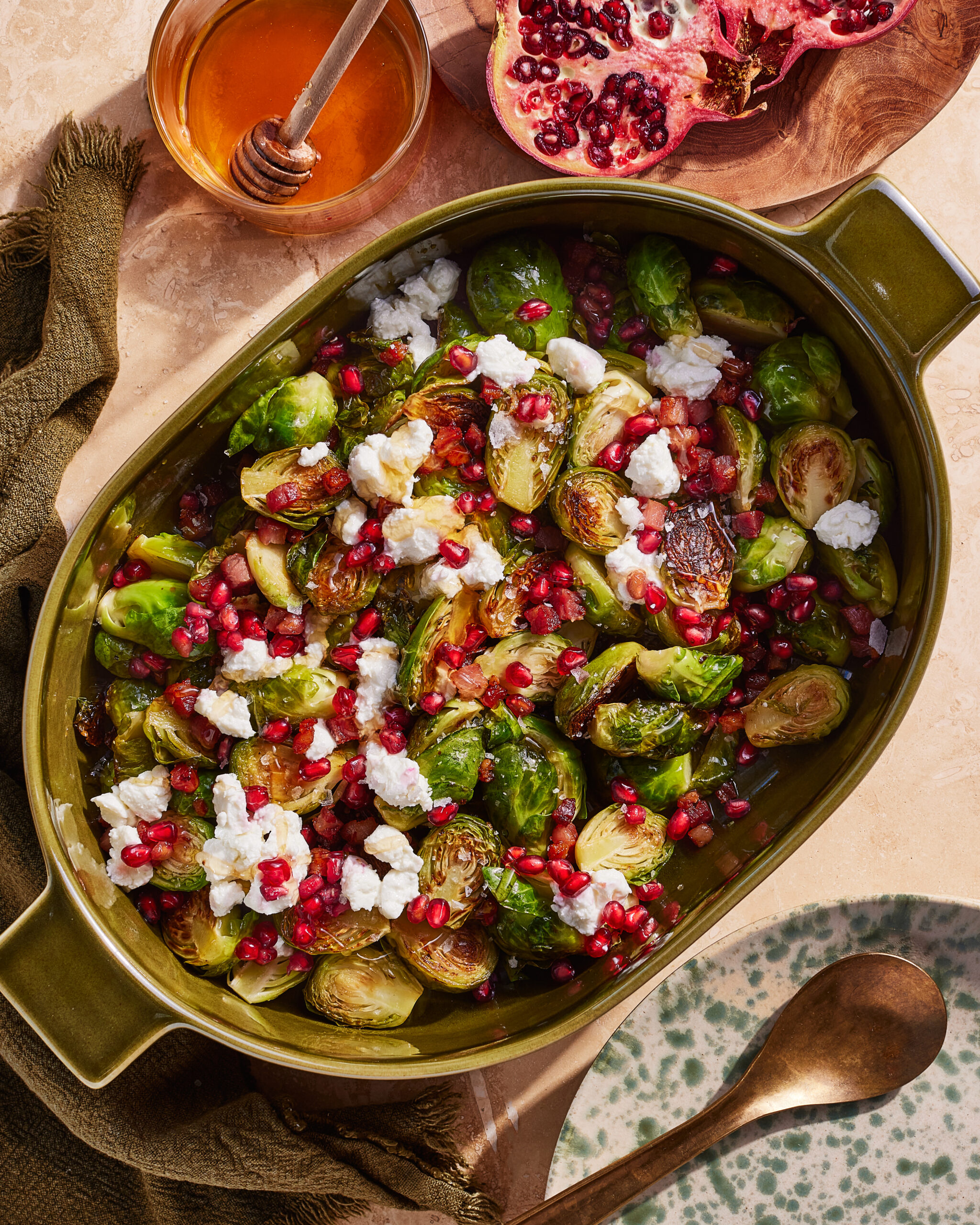
03.
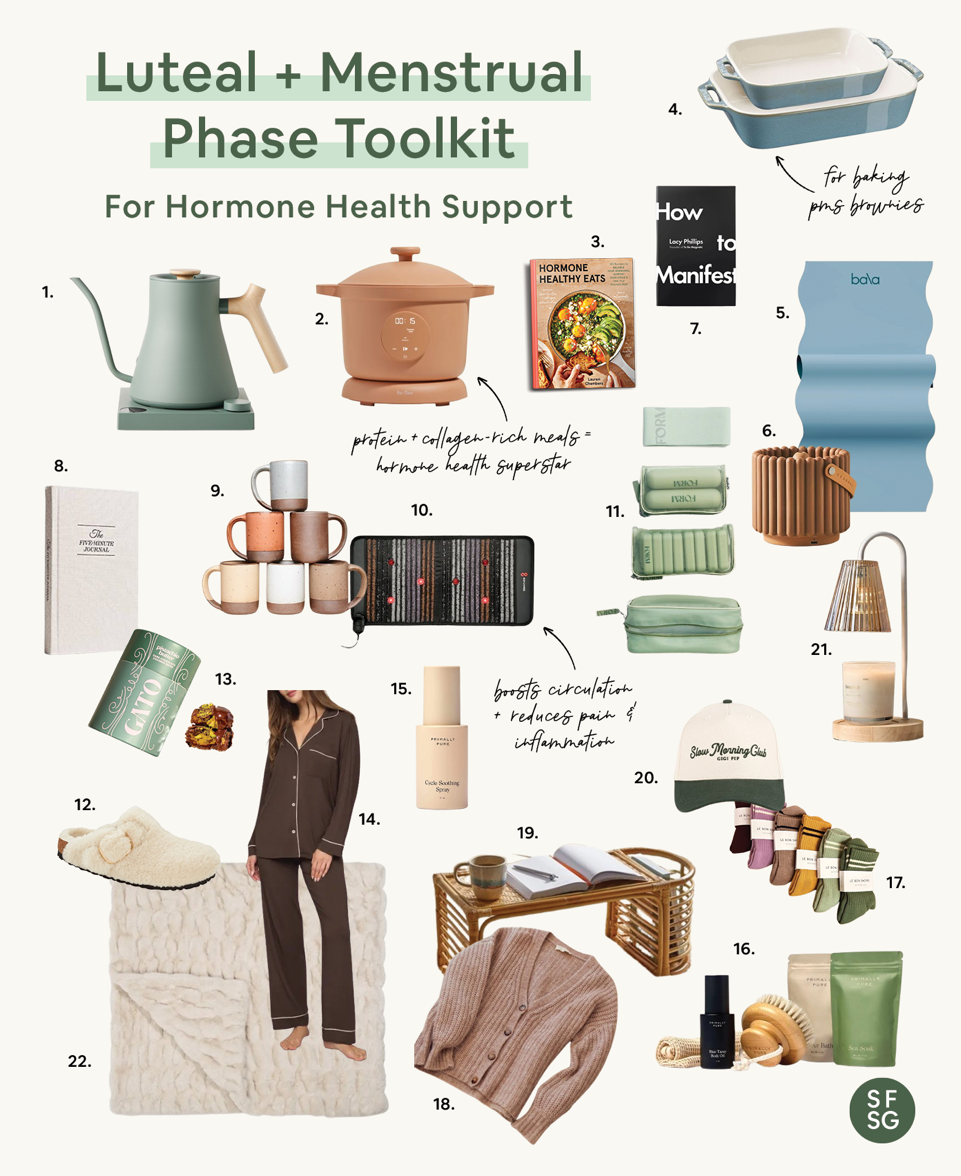
04.
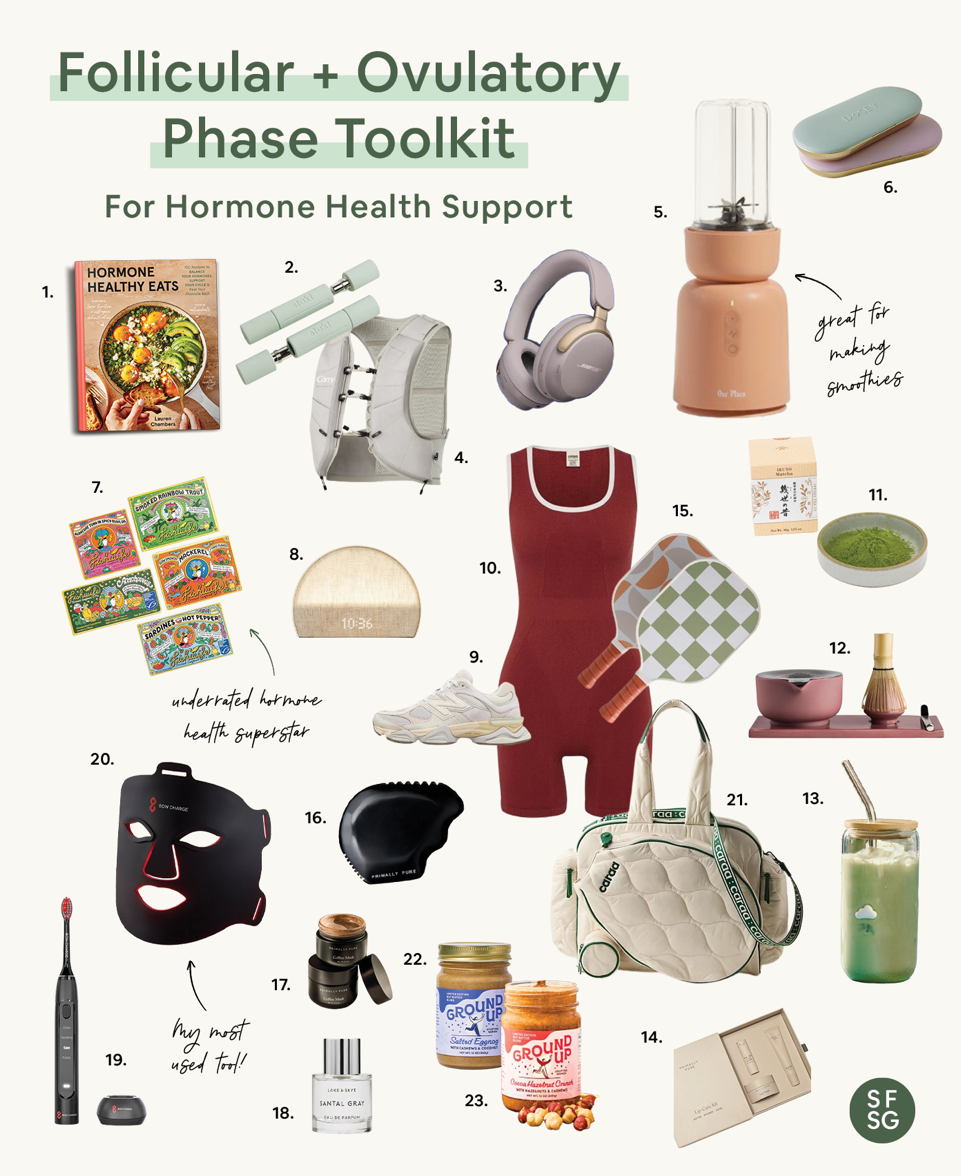
05.
hey!
Keep Browsing
Site
Keep Browsing
Site
the
about
e-books
blog
downloads
quiz
Welcome friend, I'm lauren.
I’m honored to support you on your journey to optimal hormone health + happiness. Thanks for being here babe.

